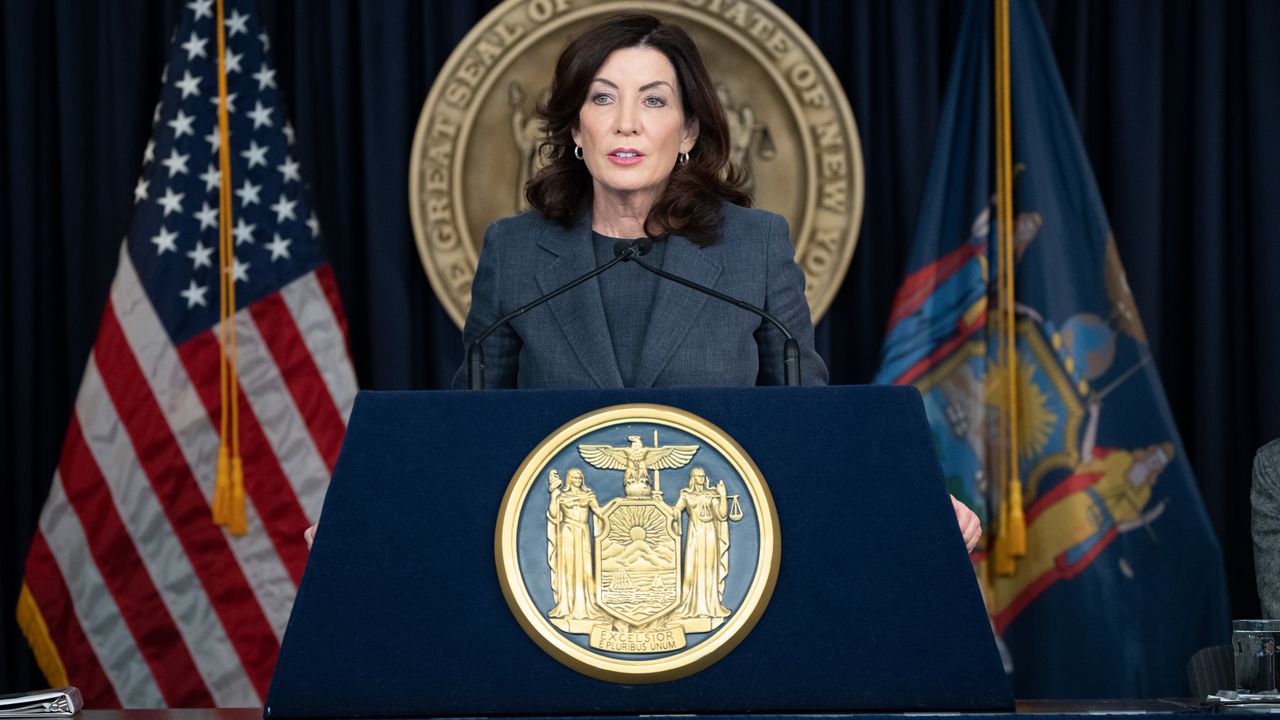Another temporary stopgap budget measure by next week was not ruled out by Gov. Kathy Hochul on Wednesday as talks continue for a broader agreement on a spending plan.
Hochul continues to seek changes to New York's 2019 bail law that could expand the circumstances in which bail is being considered by judges with defendants who face serious criminal charges as well as a statewide housing plan to add 800,000 units in the next decade.
But there's a holiday calendar that lawmakers and Hochul are bumping up against: Passover begins Wednesday; Easter is Sunday. A temporary spending measure funding state government approved this week expires on Monday.
A budget deadline of April 1, the start of New York's fiscal year, has been missed.
"We've passed the first deadline," Hochul said. "We'll be looking at it again on Monday, of course. But it's more important to get it right and I'm committeed to getting it right."
While negotiations continue, Hochul said they will "pick up again in earnest" early next week.
This week, negotiations surrounding the bail law changes have taken up much of the discussions, top lawmakers have said. Hochul wants to end a "least restrictive" standard when bail is considered for serious criminal charges.
Democratic leaders in the state Senate and Assembly have not backed the change, but also have signaled in recent days of being open to a compromise on the issue as long as the initial intent of the law to address inequities in the criminal justice system is preserved.
Hochul also wants to encourage more housing development in New York by fast-tracking qualified projects even if they do not meet local approval while also spending more on infrastructure like water and sewer.
"These are the issues that I'm laser focused on, so it's taking considerable time," Hochul said.
Meanwhile, issues like taxes, a higher minimum wage and an expansion of charter schools remain have been on the table over the last three months as well.
A late budget could become a problem if the negotiations drag into the next month as school districts must also estimate how much they will be receiving from the state in order to set their own spending plans.




